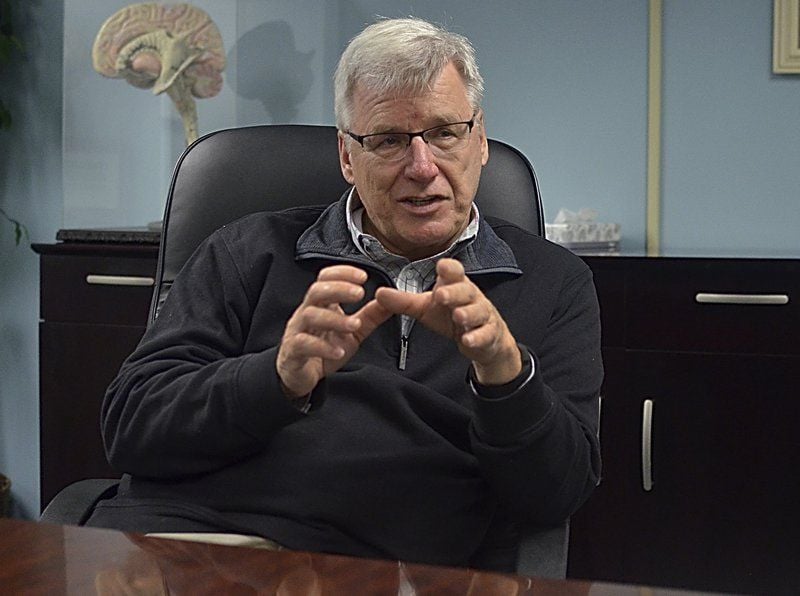
(4-11-16) Shortly before the publication of my book, CRAZY: A Father’s Search Through America’s Mental Health Madness, my editor told me that he had mailed an advance copy to Patty Duke, who was living quietly in Coeur d’Alene, Idaho.
“But don’t get your hopes up,” he warned.
Every time a new book about mental illness was about to be published, editors would send her a copy and ask for a favorable comment to help sell the book. That had been happening ever since Duke published her best-selling book “A Brilliant Madness: Living with Manic Depressive Illness” in 1992, co-authored with Gloria Hochman.
Several celebrities have written books since Duke’s. But in 1992, she was pretty much a lone voice in the Hollywood acting community. She understood that her honesty and advocacy could hurt her career but she felt compelled to educate the public. She delivered a simple yet powerful message: mental illnesses were not a death sentences. She was living proof a person diagnosed with bipolar disorder could live a happy and productive life. It was a message that needed to be heard in 1992 just as much as it needs to be heard today.
My phone rang one afternoon and I heard a voice say, “Hi Pete, this is Anna, although you probably know me better as Patty Duke.”
I’d not expected her call. She had just finished reading my book and planned to send a quote to my editor but wanted to chat first. We talked about how jails and prisons had become our new asylums and why that was wrong and how important it was for us to advocate for better mental health care and acceptance.
But what I remember most about our conversation was the concern that she showed for my son. At the time of our call, my son was not doing well and she tried to reassure me. “You son can and will get better,” she said.
A few hours after that call, my editor telephoned to tell me that Patty Duke had written a fabulous quote for my book.
“Crazy is a godsend. It will open the minds of many who make choices for the mentally ill. Countless numbers of us owe Pete Earley and his son a great debt.”
While I was grateful for such a kind comment, I was even more thankful that she had taken time to speak to me and offer me hope.
With her death, we have lost a champion.
###
I spoke last week at Indiana State University in Terre Haute and Nick Hedrick, a reporter at the Tribune-Star was kind enough to interview me. Thanks to Dr. Jennifer Schriver for inviting me.
Better treating mental illness can reduce revolving prison doors, ISU speaker says
Author recounts horror stories of people, such as his son, caught in the process
When Pete Earley arrived in New York City one day in 2002, his son, Kevin, had wandered around Manhattan for almost a week, convinced that God sent him on a special mission. It was only the beginning of the family’s years long struggle with bipolar disorder, an experience that transformed Earley from a best-selling author and journalist into an advocate for mental health reform.
Earley shared his story Tuesday evening during a speech at Indiana State University’s Hulman Memorial Student Union. A member of the National Alliance on Mental Illness, Earley travels the country encouraging communities to divert the money they spend on jailing people with mental illness toward programs focusing on housing, treatment and other social services.
“Indiana is spending money right now incarcerating people who do not need to be incarcerated, people who are homeless, people who are demanding other services,” Earley told the Tribune-Star, in an interview before the speech. “But spending it on jails and prisons ends up with just more recidivism.”
People who have mental illnesses spend three to five times longer in jail or prison than anyone else, he said, and are more likely to have additional charges filed against them. Meanwhile, just 15 percent of mentally ill Hoosiers are receiving treatment, according to the alliance.
The recidivism rate for people with mental illnesses is 85 percent, compared with an 80 percent recovery rate with treatment, he added.
“So what makes more sense,” Earley said, “spending it to have them in this revolving door? Or spending it and actually helping them?”
It took multiple hospitalizations and run-ins with the law over seven years before Kevin could get the help he needed and stabilize his illness, Earley said.
Kevin had been diagnosed with his illness a year before the episode in New York, where he was a college student. After receiving a call, Earley rushed to Manhattan to pick him up. Kevin hadn’t slept, eaten or taken his medication.
Earley details the ride to a hospital near the family’s home outside Washington, D.C., in “Crazy: A Father’s Search Through America’s Mental Health Madness.” The book was a 2007 Pulitzer Prize finalist.
Along the way, Kevin would laugh one moment and sob the next, Earley recalled in the interview. He pleaded for his son to take his pills.
“And he screamed at me, ‘Pills are poison, leave me alone,’” he said. “And then he said, ‘Dad, how would you feel if someone you loved killed himself?’”
At the emergency room, as he recounts in a version of the speech posted on his website, they were placed in a room for four hours.
A doctor told Earley that, under state law, Kevin couldn’t be forced to receive treatment unless he was a threat to himself or others. They were sent home.
Over the next two days, Earley tells his audiences, he watched his son’s condition worsen. Kevin wrapped tinfoil around his head to keep the CIA from controlling his thoughts. Later, Kevin slipped out of the house. He broke into another residence, unoccupied at the time, to take a bubble bath. Five police officers and a K-9 were required to put him into custody.
Kevin was taken to a community mental health center. There, an officer told Earley despite his son’s illness and the circumstances of the break-in, he would be transported to jail unless he threatened to kill himself or someone else.
Earley said he isn’t proud of his next move, and it damaged the relationship with Kevin. He went inside the treatment center and lied that Kevin had threatened his father’s life.
“That was my choice,” he said. “I either lied and said he’d threatened to kill me, which meant he was an imminent danger and they just would have to hold him and put him in a hospital.
“Or I had to say, no, he hasn’t threatened me, and the psychiatrist would’ve said he’s not a danger, he doesn’t need to go to the hospital, and he would have gone to jail,” Earley continued.
The next day, as he recalls in his speech, Kevin checked himself into a hospital.
Here’s where the insurance company stepped in. A day after Kevin was admitted, the company said it wouldn’t cover the claim because it thought he wasn’t in danger and didn’t need to be hospitalized.
Trying to keep his son in treatment, Earley brought up that he used to be a Washington Post reporter. He also said he happened to know “60 Minutes” correspondent Mike Wallace, who publicly discussed his own battle with depression.
Earley told the company it wouldn’t want Wallace calling to find out why a colleague’s son was being pushed out of the hospital.
Kevin remained in the hospital for two weeks. Meanwhile, the police decided to charge Kevin with two felonies — breaking and entering and destruction of property — in connection with the bubble bath incident.
During the process, Earley put his journalist’s training in gear and discovered there were a lot more people like Kevin caught in the legal system.
His work eventually led him to the Miami-Dade Pre-trial Detention Center in Florida, where he documented troubling conditions.
“I saw people who were naked in cells built for two people that had six people in them,” Earley told the Tribune-Star. “I saw people who were drinking out of toilets because the water in the jail didn’t work, and medication made them thirsty and the water was turned off.”
He also saw inmates who were experiencing delusions throw urine and feces, which brought felony charges.
Shortly after his book was published in 2006, Earley said a lawyer from the U.S. Department of Justice called him about the incidents he described, according to a blog post on his website.
In 2011, after a three-year study, the justice department found Miami-Dade corrections was “deliberately indifferent” to the suicide risk and mental health needs of inmates, did not provide proper medical care and used excessive force against inmates, the Miami Herald reported.
In 2015, as the detention system remained under federal supervision, at least one new county jail was included among proposals for new county justice buildings, according to the Herald.
Earley points to two initiatives he said are successfully addressing the alliance’s concerns.
In Los Angeles, the Lamp Project emphasizes a “housing first” approach. Unlike government policy requiring a person to be clean, sober and mentally stable before an apartment can be subsidized, Lamp believes housing is essential to recovery.
A client’s health needs are addressed only after shelter is provided. The project provides shelter first and then begins addressing the client’s health needs.
The Corporation for Supportive Housing provides similar services in Indiana.
Assertive Community Treatment is another program helping those with mental illnesses, Earley said. That directly provides services for medication, health care, housing and other necessities.
Earley’s appearance was part of ISU’s College of Arts and Sciences Community Semester program.
Jennifer Schriver, professor of psychology, said she invited Earley so students could become educated about the realities of mental health in the criminal justice system and gain a sense of empowerment to advocate change.
Schriver teaches a course on psychology and the legal system and is faculty adviser for ISU’s recently created alliance chapter.
“We have a group of students here who are very interested in educating the student population, and also doing some advocacy work on behalf of these kinds of issues,” she told the Tribune-Star.
As for Kevin, after four more breakdowns and further run-ins with police, he eventually checked himself into a safe house. A case manager helped place him in a housing-first program, and a doctor prescribed him a medication without many adverse side effects.
Kevin’s now a peer-to-peer specialist helping people with mental illnesses and works at a movie theater. Earley said he’s been stable for nearly seven years.
“And if he was in this room, you wouldn’t have a clue he had a mental illness unless he told you,” Earley said. “So recovery is possible. The question is: How do you people get to that stage.”




